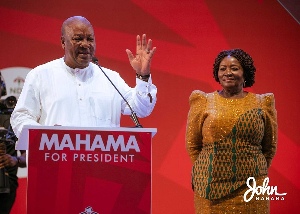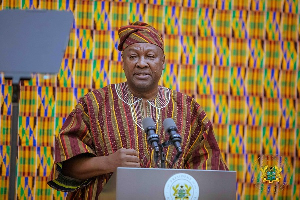Dress code for men and women which needs to be taken seriously rather creates problems among people of different cultures across the world.
In the West Africa sub region, the inhabitants have got themselves growing in communities influenced by our colonial or religious masters of France or England or the Arab North.
Depending on which religion they subscribe to, the inhabitants either wear western style attires of shirts and trousers, coats and ties, or traditional wears of “batakari”, “jalabia” cap and veils for the men and or traditional attires and veils for women.
However due to the current wind of change in modernization blowing over the entire world, some young men and women have begun wearing attires that expose the vital parts of their bodies. The right thing to do is for people to wear dresses that would cover the greater parts of their bodies, whether they are Muslims, Christians or traditionalists.
Historically the wearing of dresses to cover the vital parts of our bodies which culminated in women wearing “hijab” begun long, long ago as made known during discussions on men’s and women’s dress code in Islam which got assembled by Mallam Abba Abana, of Kubwa in Abuja, Nigeria. The findings are as follows;
Many Muslims and Non-Muslims call "Hijab", an Islamic dress code. They completely ignored the fact that, "Hijab" or veil can be traced back to early civilizations. It can be found in early and late Roman and Greek art.
The evidence can be seen in archeological discoveries whether in pottery fragments, paintings or recorded civil laws. In Greco-Roman culture, both women and men wore head covering in religious contexts.
The tradition of wearing the veil (by women) and the head cover (by men) was then adopted by the Jews who wrote it in the TALMUD (Talmud is like Hadiths and Sunnah) then the Christians adopted the same.
A well respected Rabbi once explained to a group of Jewish young women, "We do not find a direct command in the Torah mandating that women cover their heads, but we do know that this has been the continuing custom for thousands of years."
After the Prophet Muhammad's (peace and blessings of Allah be upon him) death, the writers of the hadith books adopted and encouraged the ancient tradition of head covering.
Hadith book' writers took after the Jews as they did with many other traditions. Any student of the Jewish traditions or religious books will see that head cover for the Jewish woman (and men) has been encouraged by the Rabbis and religious leaders. Observant Jewish women still cover their heads most of the time and especially in the synagogues, weddings, and religious festivities.
Christian women cover their heads in many religious occasions while the nuns cover their heads all the time. As we can expect the traditional Arabs, of all religions, Jews, Christians and Muslims used to wear head cover, or "Hijab," not because of Islam, but because of tradition.
In Saudi Arabia, up to this day most of the men cover their heads, not because of Islam but because of tradition. North Africa is known for its Tribe (Tuareg) that have the Muslim men wearing "Hijab" instead of women.
Here the tradition has the hijab in reverse. If wearing Hijab is the sign of the pious and righteous Muslim woman, Mother Teresa would have been the first woman to be counted. In brief, hijab is a traditional dress and has nothing to do with Islam or religion. In certain areas of the world, men are the ones who wear the hijab while in others the women do.
Mixing religion with tradition is a form of idol worship, since the followers of traditions are following laws from sources other than God's scriptures and claim it to be from God. Idol worship is the only unforgivable sin if maintained till death.
Ignoring what God asks you to do in His book, or following innovated laws not stated in the Quran, is a clear sign of disregarding God and His message. When tradition supersedes God's commandment, the true religion takes a second place. God never accepts to be second, God has to be always the FIRST and to HIM there is no second.
Executive Director eanfoworld for sustainable development abdulai.alhasan@gmail.com/eanfoworld@yahoo.com 0244370345/0208844792/0274853710
Opinions of Wednesday, 2 August 2017
Columnist: Alhaji Alhasan Abdulai















